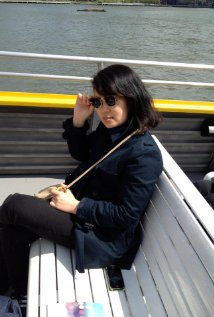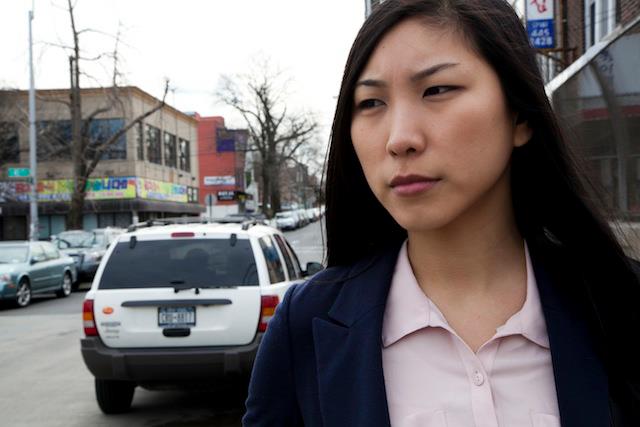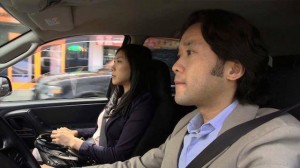Miss Communication: Jules Suo talks disconnection in “528 New York”
Our recent acquisition, “528 New York” (2014) is a short film about a disconnected group of individuals living in the bustling metropolis known as the Big Apple. It is an objective, clinical study of how varying ethnic communities – specifically the Korean, African-American, Causasian and Middle-Eastern groups interact – or fail to communicate in modern-day New York City. Stay tuned for digital download availability in the coming months.
I first saw the film at the inaugural Rated SR Film Festival, heralded by intrepid Artistic Director Nora Armani. Directed by filmmaker Jules Suo, who has a background in fashion design, the short film acts as a preview for better things to come. It is the micro version of a feature-length script that is currently in pre-production, and I can’t wait to see where the feature develops.
I was able to ask Miss Suo a few pertinent questions about the content of her film as well as about the nature of distribution possibilities for filmmakers in the Age of Miscommunication.
Your short film “528 New York” deals with the breakdown of communication between wildly different communities in New York City. A Middle Eastern cab driver gets into a fight with a white, middle-class couple; a pair of police offers wrongfully target an African-American youth; a Korean couple move into a new apartment building in Queens but all is not what it appears to be. It’s not easy to write a script like this. How did you handle the dialogue and structure of the film?
528 New York delves into interpersonal disconnection and miscommunication as well as the interrogation of the auditory. The communication with various cultures is not that different, just different languages. I like to write the natural dialogue interaction of New Yorkers. I found my inspiration whenever I’d walk out of my doorstep – people on the streets, subway, stores, parks.
The film reminded me stylistically of one of my favorite auteur filmmakers, Michael Haneke, especially his films Code Unknown and 71 Fragments of a Chronology of Chance – these very dry, chilly pieces that specialize in post-capitalist alienation and disconnect. Can you tell me a little bit about your inspiration for the film?
Filmmaking is such a collaborative process. I feel that it’s very important to have a relationship with a distributor where it’s a team effort with the filmmaker and not be a separate entity. I personally like the idea of hybrid distribution; splitting rights among distribution partners, while retaining the ability to sell DVDs and downloads directly from my website.
 Jules Suo is an Korean-American filmmaker based in New York City. A graduate of Fashion Institute of Technology, she studied Filmmaking at NYU. Her short film 528 New York, recently played at Socially Relevant Film Festival, KAFFNY, and Big Apple FF. She is currently working on her feature-length version of 528 New York, entitled Dosi. – Jordan Mattos
Jules Suo is an Korean-American filmmaker based in New York City. A graduate of Fashion Institute of Technology, she studied Filmmaking at NYU. Her short film 528 New York, recently played at Socially Relevant Film Festival, KAFFNY, and Big Apple FF. She is currently working on her feature-length version of 528 New York, entitled Dosi. – Jordan Mattos




